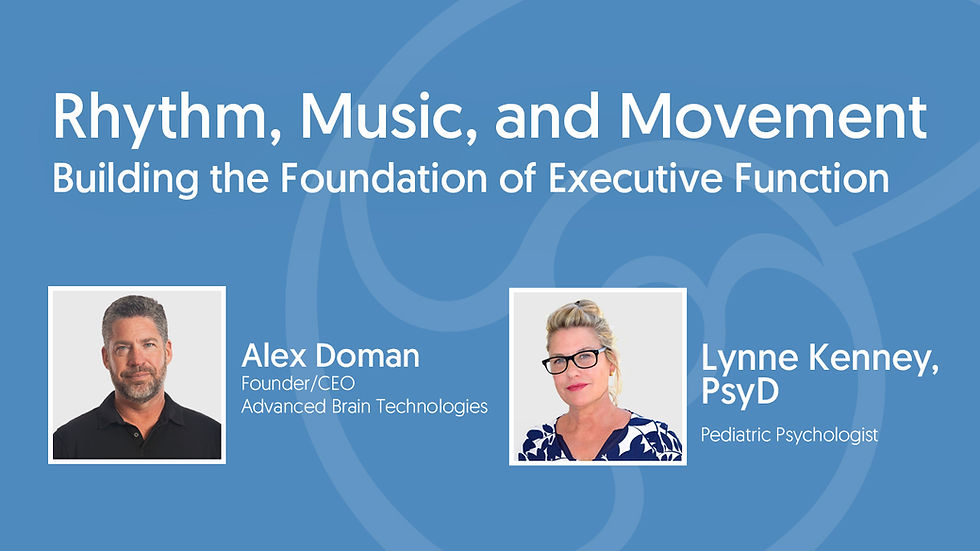Sensory-Motor and Perceptual-Motor Skills: What's the difference?
- drlynnekenney

- Mar 14, 2023
- 2 min read
Updated: Jun 26, 2023

Sensory-motor skills and perceptual-motor skills are two closely related but distinct concepts in motor learning and performance.
Sensory-motor skills refer to the ability to integrate sensory information (such as sight, sound, touch, vestibular function, and proprioception) with motor commands to produce precise and coordinated movements. Examples of sensory-motor skills include catching a ball, riding a bicycle, or typing on a keyboard. Sensory-motor skills are typically developed through central-nervous system integration and are refined over time through practice, feedback, and error correction (Asan et. al, 2021).
The human sensory-motor platform is the system that allows for the integration of sensory information and motor control to produce precise, coordinated, and goal-oriented movements. Sensory-motor skills are integrally related to learning, behavior, and achievement in children and adolescents.
Perceptual-motor skills, on the other hand, refer to the ability to perceive and interpret environmental cues in order to guide motor actions. Perceptual-motor skills are often involved in activities that require rapid decision-making and adaptation to changing environmental conditions. Examples of perceptual-motor skills include driving a car, playing a sport, or navigating a crowded space. Perceptual-motor skills are also learned through practice and experience but rely more heavily on the ability to interpret and respond to sensory information in real-time.
While there is an overlap between sensory-motor and perceptual-motor skills, they can be distinguished by the relative importance of sensory integration versus perceptual interpretation in guiding motor actions. Some research suggests that perceptual-motor skills may be more dependent on cognitive processes such as attention, memory, and decision-making, while sensory-motor skills may be more automatic and reflexive (Henderson & Gabbard, 2007; Lohse et al., 2014). Poorly developed sensory-motor skills are associated with neurodevelopmental uniquenesses in children (Leonard, 2016). Developmental Coordination Disorder is also closely related to deficits in sensory-motor skills (Pinero-Pinto, 2022).
Interestingly, developmental psychologists have understood that motor skills precede cognitive skills for many years. Specifically, motor skills seem highly related to other developmental domains during the first 3 years of life, but this relationship seems to weaken or disappear as children grow older - with the one notable exception being a positive relationship between motor and math skills that persists until at least age 6 (Libertus & Hauf, 2017). Yet, for children with dyslexia, dyspraxia, dyscalculia, dysgraphia, ASD, and ADHD these motor challenges can continue to pull on learning into adolescence.
For those of us who work with neurodiverse children, it is critical to understand the contributions sensory-motor skills, perceptual motor skills, language, and cognition play in children's cognitive, academic, social, and behavioral success.
Overall, while sensory-motor and perceptual-motor skills share some similarities, they can be distinguished by the relative importance of sensory integration versus perceptual interpretation in guiding motor actions, as well as by the cognitive processes involved in learning and performance.





